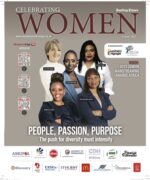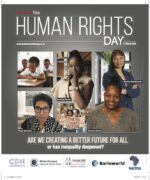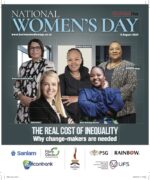When I first dipped my toes into the world of media in the mid-’90s at UCT’s student newspaper, Varsity Newspaper, the platform was already a radical voice for transformation and empowerment.
Our language was intentional, it was urgent and it wasn’t nuanced by any political correctness or socially woke restrictions. It was loud, it was clear.
But in a corner of today’s media landscape, it seems that our language patterns have all but morphed into a checklist of what’s comfortable, socially acceptable and boss-friendly.
It is apparent that our messaging around transformation and empowerment issues, at times, is no longer hard-hitting or thought-provoking; we merely trot out copy that doesn’t even begin to scratch the surface of the issues, in fear that we will offend.
We tiptoe around the all-too-familiar ‘slow pace of change’ and ‘still more to be done’ discourse. But this doesn’t help anyone’s cause. And isn’t media the platform to not just spark meaningful conversations, but to drive real change?
We have the power to really shape public opinion, challenge the status quo, and hold those in power accountable. And unlike many social media campaigners today, we have the responsibility, ability and necessary journalistic tools to do this.
So why are we still taking the safer route; why are we copping out of speaking up?
Be disruptive, assertive, unapologetic
The language we use in news media and in our social campaigns is crucial. It should be intentional, provocative and unafraid to challenge. We should stop being so politically and socially correct and once again adopt a more disruptive, assertive and unapologetic approach.
News media must dig deep below the surface and put our interviewees on the spot so we can shed light boldly and bravely on the harsh realities of disparity and inequality, particularly around gender transformation.
Words, such as diversity and inclusion and belonging, buzzing across boardrooms globally, really do not talk to the urgency of equity and fairness. We must make a conscious decision and effort to uncover the core of the issues to amplify the voices of our communities and mobilise individuals to take action, pushing for tangible change in our households, communities and at work.
I understand that language must be sensitive to people, experiences and issues, but a watered-down socially acceptable language construct and discourse only perpetuates the status quo. It hinders progress and maintains the existing power imbalances. As women in media, we have the responsibility to disrupt this pattern and challenge the comfortable narratives.
We should be unafraid to ask difficult questions, expose injustices, and demand accountability. It’s no longer enough for those of us who control what is reported on to simply go with the flow.
Ask difficult questions, do in-depth investigations
Let’s investigate why one of the key findings in the World Economic Forum’s Global Gender Gap Report 2024 still says: “Based on current data, it will take 134 years to reach full parity – roughly five generations beyond the 2030 Sustainable Development Goal (SDG) target.”
Let’s ask our women CEOs, when we report on their ground-breaking appointments, what strategies they have in place for the next cohort of female leaders. Then follow this with an in-depth investigation of how effective these strategies are, how targets were set, what tangible impact the strategies have and why their boards and executive teams are still mainly pale and male.
It’s not enough to simply report on the pockets of success, we must begin to ask why radical change has not yet happened.
Let’s ask questions around how leaders are breaking down biases, and how effective these policies are; let’s ask government, civil society and corporate SA to explain how they decide what a fair gender equity goal is, and how they track and measure progress; and let’s hold organisations founded to address social injustices accountable for the ‘slow pace of change’ within their areas of influence.
Reigniting the passion to drive transformation
I want to reclaim my role as a catalyst for social change, particularly in addressing gender disparities and promoting empowerment, through the products I work on.
And I want to reignite my radical voice and break free from living under the constraints of a ‘woke’ society, which, at times, has left me despondent by the lack of change and may have caused me to lose my passion to encourage our writers to write with fire.
This passion must be rekindled and used to drive content that inspires meaningful transformation.
Women in media have the potential to be a powerful force for transformation and empowerment in their brands and workplaces, and for every other marginalised group that seems to be asking apologetically for fairness and equity.
Let’s be intentional and bold!
Raina Julies has spent the last 26 years in the media space. She is currently the content manager at Picasso Headline, overseeing the production of more than 40 titles in both print and digital. For more information about these brands, log onto www.businessmediamags.co.za.

















